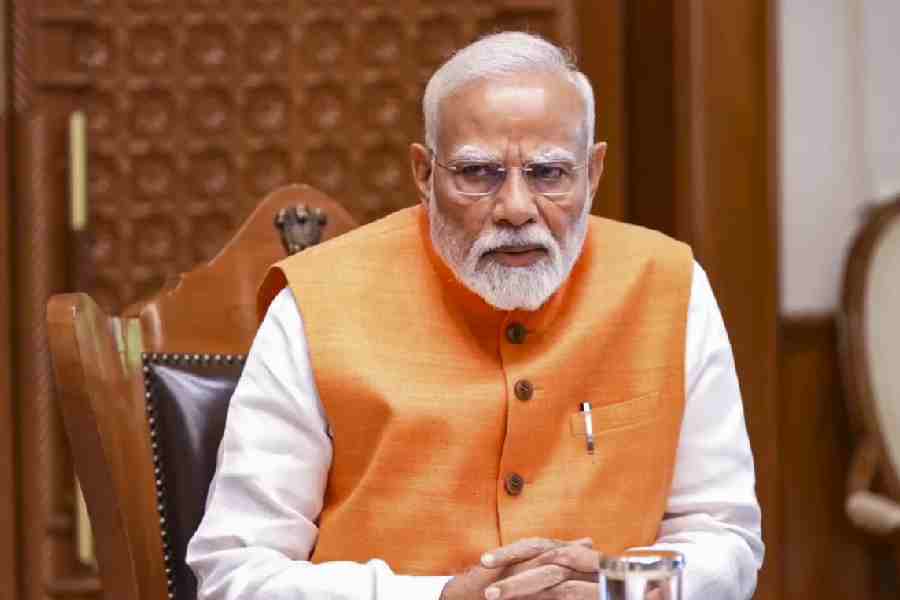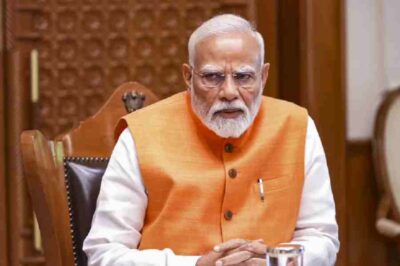
Terror Strikes in Pahalgam
India is reeling from one of the deadliest terror attacks in recent years. On April 22, 2025, gunmen opened fire on a group of Hindu pilgrims and tourists in Pahalgam, Jammu and Kashmir, killing 26 and injuring dozens. The attack, carried out by the little-known outfit Kashmir Resistance, shocked the nation and drew widespread condemnation. Prime Minister Narendra Modi, in a late-night meeting with top military and intelligence officials, vowed that the perpetrators would face “the full weight of India’s resolve.” The victims were primarily from Maharashtra and Gujarat, and many were women and children. The attack has triggered nationwide grief and outrage, with political parties calling for swift and decisive action.
Modi Gives Military a Free Hand
In a televised address following the high-level security review, Prime Minister Modi announced that Indian armed forces had been given a “free hand” to decide the timing and nature of India’s response. This language, reminiscent of the 2016 Uri and 2019 Pulwama episodes, sparked speculation of an imminent retaliatory strike. “They made a grave mistake. They will pay a heavy price,” Modi said, hinting at a punitive response to the Pahalgam massacre. Defence analysts suggest the military has already identified strategic targets, possibly across the Line of Control (LoC), and is awaiting final go-ahead. The air force has reportedly ramped up sorties near border zones, while additional troops have been moved into forward positions in Jammu, Punjab, and Ladakh.
Pakistan Warns of Indian Strike
As India’s mood hardened, Islamabad responded with sharp rhetoric. Pakistan’s Foreign Minister claimed his country has received “credible intelligence” that India is planning a military operation within the next 24 to 36 hours. Pakistan has placed its forces on high alert and vowed to retaliate forcefully. The Pakistan Army issued a statement warning India against “misadventure” and accused New Delhi of using the Pahalgam attack as a pretext for aggression. Islamabad denied any involvement with the Kashmir Resistance group and called for a joint investigation, an offer India has rejected outright.
Rising Cross-Border Tensions
In the days following the attack, ceasefire violations along the LoC have increased dramatically. Reports of artillery shelling and sniper fire have come in from Rajouri, Poonch, and Kupwara sectors. Both sides accuse each other of provoking the clashes. Meanwhile, the Indian government has suspended cross-border trade, halted diplomatic visas for Pakistani nationals, and instructed tech platforms to remove social media accounts linked to Pakistani celebrities and journalists. Pakistani media outlets have warned that the current situation mirrors the prelude to the 2019 Balakot airstrikes.
International Community Steps In
The sudden escalation has alarmed the international community. The United States and the United Nations have called for restraint, urging both sides to “de-escalate through diplomatic means.” The UK’s foreign office issued an advisory for its citizens to avoid travel to northern India and all parts of Pakistan. China, while refraining from taking sides, expressed concern over the security implications for the broader South Asian region. Foreign observers fear that continued military posturing by either side could spiral into a full-scale conflict, given the presence of nuclear weapons on both sides of the border.
India’s Political Climate Heats Up
Back home, the attack has shaken the political landscape. The opposition Congress party has expressed support for the government’s stance but has also accused Modi’s administration of failing to prevent recurring attacks. In Parliament, heated exchanges were seen between ruling BJP and opposition leaders, with Home Minister Amit Shah declaring, “We will not sit back and mourn. We will act.” At the same time, questions are being raised about intelligence lapses and border security preparedness, especially given recent reports of increased infiltration attempts in Kashmir.
A Dangerous Brink
With both India and Pakistan posturing aggressively, the region is teetering on the edge. India’s military remains on high alert, and Pakistan’s air force has reportedly moved several combat aircraft to forward bases. While back-channel diplomacy may be underway through international intermediaries, any miscalculation or rogue provocation could lead to a dangerous escalation. In the coming hours, as the clock ticks on Pakistan’s claimed 36-hour warning window, much of South Asia, and indeed the world, is watching, hoping that reason will prevail over revenge.









































Leave a Reply